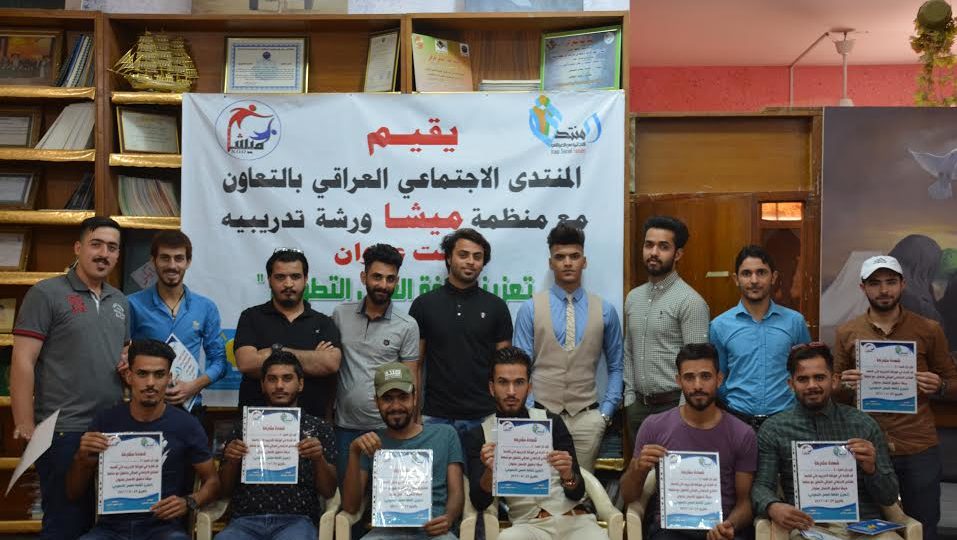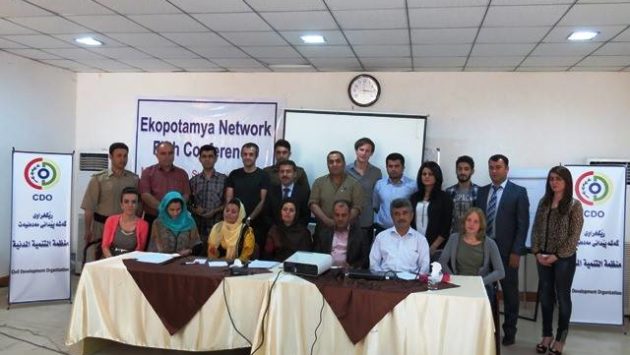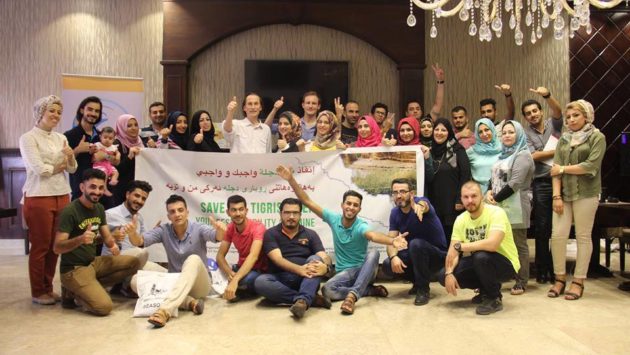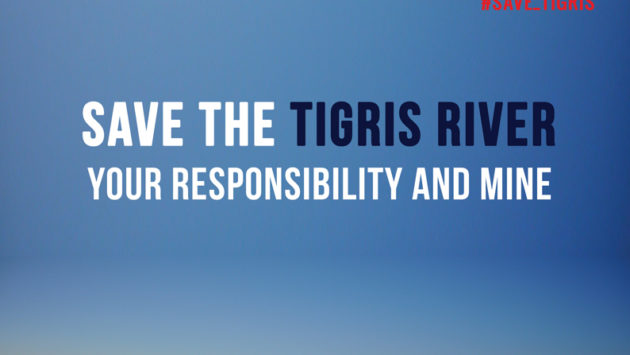The Iraqi Social Forum on a Working Tour in Southern Iraq
The Iraqi Social Forum and the Humat Dijlah Association held a number of meetings with local officials and activists from Dhi Qar and Nasiriyah governorates on 10 May. ISF hoped to strengthen their relationships with civil society and activists in the province, especially as the governorate suffers from a range of social and environmental issues. ISF worked to highlight the importance of activating these relationships as a means of forming a strong national network capable of effectively serving the public interest.
The meetings began with two members of the Dhi Qar Provincial Council, Engineer Hassan Wreoush, Deputy Chairman of the Supreme Executive Committee for the marshes and relics file, and Mr. Shahid Al-Ghalbi, Vice-Chairman of the Civil Society Organizations Committee.
Hassan explained: “The commitments relating to the Marshlands and the file of the inclusion of archaeological areas in the region on the UNESCO World Heritage List have been completed. The annual plan was developed by a group of concerned government institutions, and we have ratified it in the provincial council.” He added: “The local council directed all government departments in the province to cooperate and coordinate their efforts in order to meet these commitments.”
In Maysan, ISF activists met with the environmental researcher, Ahmed Saleh Nima, who expressed his willingness to cooperate with the activities of the Iraqi Social Forum inside and outside Maysan. Mr. Jasab Ahmed, the first deputy governor, responsible for the Marshlands Restoration Committee and the World Heritage Sites in the province, also expressed his readiness to cooperate with ISF, and contribute to its work in the province.
The tour also included meetings with local ISF activists. They discussed their guiding principles, recommendations for the direction of the ISF, and effective mechanisms to support voluntary teams who work within the ISF framework and organize activities in line with ISF campaigns in their own cities.
ISF activists also met with a number of residents living near the marshes, many of whom complained about the low water levels in their areas. They called for quotas which would ensure sufficient water to overcome the drought period this year. A local observatory confirmed a decrease of 10 cm on the banks of the marshes, extending to as many as 50 cm toward the middle of the marshes.
.
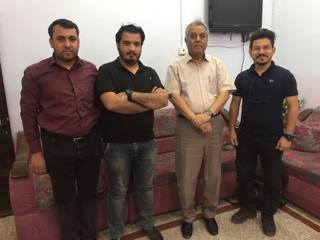
Iraqi Social Forum Training for New Volunteers in Maysan
To develop youth leadership spirit, and provide young volunteers with skills necessary to manage teams, the Iraqi Social Forum, in cooperation with the Misha Human Rights Organization, organized a training workshop entitled “Promoting a Culture of Volunteering” in Maysan.
15 young people attended the seminar and discussed the concept of volunteering itself (who is a volunteer? what are the general objectives of volunteering?), and how to manage a team of volunteers. Seminar leaders presented their own experiences volunteering, in hopes that they would be successful models to those just starting. The principles and objectives of the Iraqi Social Forum were explored, along with its current projects in the province. The participants were then divided into working groups based various ISF campaigns: such as water and the environment, nonviolence and peace building, economic and social rights, and women and equality.
These groups produced documents with concrete ideas for beneficial and effective voluntary work that might be done in the governorate. These documents will now be evaluated by the Misha organization and the ISF, and later be implemented on the ground.


